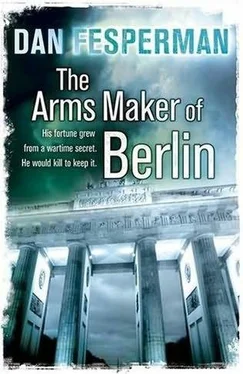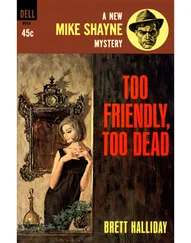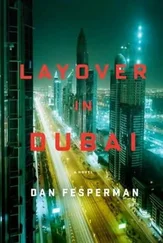Dan Fesperman - The Arms Maker of Berlin
Здесь есть возможность читать онлайн «Dan Fesperman - The Arms Maker of Berlin» весь текст электронной книги совершенно бесплатно (целиком полную версию без сокращений). В некоторых случаях можно слушать аудио, скачать через торрент в формате fb2 и присутствует краткое содержание. Жанр: Триллер, на английском языке. Описание произведения, (предисловие) а так же отзывы посетителей доступны на портале библиотеки ЛибКат.
- Название:The Arms Maker of Berlin
- Автор:
- Жанр:
- Год:неизвестен
- ISBN:нет данных
- Рейтинг книги:5 / 5. Голосов: 1
-
Избранное:Добавить в избранное
- Отзывы:
-
Ваша оценка:
- 100
- 1
- 2
- 3
- 4
- 5
The Arms Maker of Berlin: краткое содержание, описание и аннотация
Предлагаем к чтению аннотацию, описание, краткое содержание или предисловие (зависит от того, что написал сам автор книги «The Arms Maker of Berlin»). Если вы не нашли необходимую информацию о книге — напишите в комментариях, мы постараемся отыскать её.
The Arms Maker of Berlin — читать онлайн бесплатно полную книгу (весь текст) целиком
Ниже представлен текст книги, разбитый по страницам. Система сохранения места последней прочитанной страницы, позволяет с удобством читать онлайн бесплатно книгу «The Arms Maker of Berlin», без необходимости каждый раз заново искать на чём Вы остановились. Поставьте закладку, и сможете в любой момент перейти на страницу, на которой закончили чтение.
Интервал:
Закладка:
The only bright spot was that his father had somehow wangled a travel permit for another trip to Switzerland. But even that turned out badly when he failed to secure a second meeting with Dulles. The Americans seemed to be losing interest.
So, on the day after the most recent White Rose meeting, Kurt decided to carry out his one-man plan after all. Now he just had to steel up the nerve to go through with it.
He circled the Brandenburg Gate and set course once again for the Reich Main Security Office. Glancing toward Pariser Platz, he spotted the hulking antiaircraft battery atop I. G Farben headquarters. It reminded him of his father, who had boasted just the other day of government plans to put a similar battery atop the Bauer offices in Spandau. Amazing that the old man could still play the role of proud patriot after everything that had happened. Perhaps that was all his father had left. Unless Kurt acted now.
Five blocks later he began his third approach, and this time he kept going. He pushed through the heavy doors past a pair of sentries into a bustling lobby. At the security station next to the stairway, flanked by two more sentries, he was greeted by an officious-looking fellow seated at a big desk.
“Yes, young man?”
Kurt spoke quickly. Pause now and he might never get the words out.
“I have important information to report.”
“As does everyone who comes through that door.” The man sounded bored. He looked down at his desk and began flipping through a magazine. “Your name?”
“Kurt Bauer.”
“Fill this out.”
Without looking up, the man shoved forward an official-looking form. Kurt stood straighter, cleared his throat, and spoke louder.
“I am the son of Reinhard Bauer, of the Bauer Armament Works.”
The fellow stopped turning pages and looked up for a reappraisal, no doubt taking note of Kurt’s fine wool overcoat, the dark kid gloves, and the white shirt with its starched collar. He shut his magazine.
“What is the nature of this report?”
“Firsthand information concerning the activities of a local resistance organization.”
The fellow cocked his head.
“Firsthand, you said?”
“I know who is distributing those pamphlets from the group known as the White Rose. All of that and more. But I am putting you on notice that in exchange for this information I expect to receive certain considerations. For myself and for my family.”
It was the last part of this sales pitch that had been hardest to plan. Informing on friends was terrible enough. Kurt had justified it to himself on the grounds that their names would soon be known anyway, due to the recent arrests. But to demand a favor from the Gestapo took more fortitude than anything he had yet attempted. For all he knew, they might laugh in his face, then take him out back to be shot.
Yet now that he was actually speaking, he heard in his voice the tone that his father usually reserved for balky clerks and secretaries, or shop foremen who weren’t pulling their weight. Maybe all that training to prepare him for the business world was finally paying off. Already he sensed that this clerk wasn’t accustomed to dealing with the likes of a Bauer, so Kurt pressed his advantage.
“I don’t wish to speak to just anyone. Nor will I tolerate a lengthy wait. Well? What do you plan to do about it?”
“I know just the person,” the man said, nodding briskly as he raised a finger. His manner was transformed. An observer might have figured him for a deskman in a posh hotel, attending to a valued guest. “Excuse me while I phone him for you.”
AT THAT MOMENT, Martin Göllner was in a staff room upstairs, hoping that no one smelled the coffee he was brewing. It was his first real coffee in months, and he didn’t wish to share. It had been delivered an hour earlier, a bribe from an old Jew who had been outed by a neighbor after the neighbor grew tired of the Jew’s barking dog. Not that the bribe did any good. The Jew was now locked in a cell downstairs, awaiting questioning. He would be pumped for any information on the whereabouts of friends and relatives, and by tomorrow afternoon he would be riding an eastbound train. But it was the nosy neighbor that Göllner wanted to throttle, because now there was a lot of extra paperwork to take care of, when what Göllner really wanted was a day off.
Such petty motives were typical for him lately. His caseload was drowning in trivia-shrewish wives denouncing unfaithful husbands, unfaithful husbands denouncing troublesome mistresses, troublesome mistresses denouncing shrewish wives. The circle never stopped. And don’t get him started on all the disputes between neighbors, or students and teachers, or employees and bosses. Most of it came from the nattering rabble of the Mittelstand, cooped up during the bombing raids in overcrowded basements where everything smelled of mud and rat dung. No wonder they were at one another’s throats.
The problem for Göllner was that once any complaint, no matter how small, became official, it had to be investigated. Because the only thing worse to his bosses than letting a political malcontent or an undiscovered Jew run free was letting uncleared casework pile up on their desks. The joke of it was that most of these busybody informants believed that his office was all-powerful. Everyone imagined a vast network of spies, all of them super-Nazis of SS rank. The reality was that the Gestapo relied heavily on the rabble for its tips. Berlin had become a city of tattletales, a gossip mill with eyes and ears in every building.
Göllner, like most of his coworkers, had been a cop before the war. He had walked a beat for a year and served a mere two months as a gumshoe before the new hierarchy took over. But he was bright, and he knew when to keep his mouth shut, so he was promoted quickly through the ranks. He now had an SD uniform to go with the imposing title of Sturmbandführer. Currently he straddled two desks in Berlin’s district operations, reporting to the head of Subsection A, which looked into matters of political opposition and sabotage, and also to the head of Subsection B, which kept a lookout for Jews and renegade clerics.
At the moment his only productive paid informant was a Catholic priest who was so desperate to hang on to his job that he sent Göllner weekly summaries of his parishioners’ confessions. Hilarious stuff, mostly. But worthy of an arrest or two when things got slow.
The coffee was finally brewed, and so far no one had noticed. Göllner picked up the pot just as his phone rang next door. His secretary shouted for him.
“Coming!” he answered. He carried the pot with him, supposing that now he would have to share it with her. By the time he picked up the receiver she was already pouring herself a cup, and her mug was bigger than Göllner’s.
“Yes?”
It was Brinkmann, the toad from the lobby. Yet another visitor was seeking an audience, although for a change Brinkmann was on his best behavior. When Göllner heard the visitor’s name, he understood why. His senses went on full alert.
“Send him up immediately,” he said. “In fact, you are to escort him personally. Have one of the sentries sit in for you. Take Mr. Bauer to interview room 7-A and lock the door. Tell no one else who he is.”
“Yes, sir.”
“You’d better leave him with some water, a full pitcher with a glass. And ask first if he needs to use the toilet. We’ll go carefully with this one.”
He needed to speak with his boss. They weren’t accustomed to this type of visitor. The rich and the privileged almost never brought their complaints through the front door. They tended to either settle matters between themselves or go straight to the top. In fact, wasn’t Rein-hard Bauer supposedly a pal of Wilhelm Stuckart’s? Göllner had seen them in the papers, photographed together along with Speer. Then why was the man’s son here, strolling in off the street like some street cleaner from Moabit?
Читать дальшеИнтервал:
Закладка:
Похожие книги на «The Arms Maker of Berlin»
Представляем Вашему вниманию похожие книги на «The Arms Maker of Berlin» списком для выбора. Мы отобрали схожую по названию и смыслу литературу в надежде предоставить читателям больше вариантов отыскать новые, интересные, ещё непрочитанные произведения.
Обсуждение, отзывы о книге «The Arms Maker of Berlin» и просто собственные мнения читателей. Оставьте ваши комментарии, напишите, что Вы думаете о произведении, его смысле или главных героях. Укажите что конкретно понравилось, а что нет, и почему Вы так считаете.












